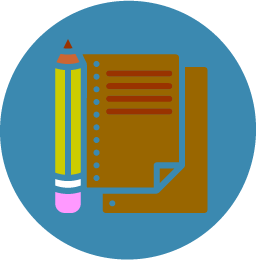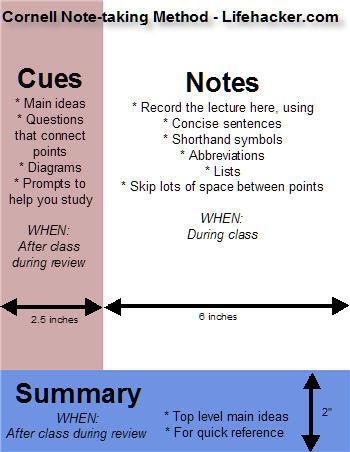
Taking effective notes
Lecture notes; using your pen and engaging your mind
By Access and Equity ServicesThe Cornell system is an efficient way to organize and use your notes for studying

Using Your Pen
- “Lecture notes should be as specific and concrete as possible: (be precise).”
- Don’t write down everything you hear. Write down ideas that link together in the theme of the lecture. If the instructor is going too fast use cue words or abbreviations and symbols – if sharing your notes please also write a legend that explains these shortcuts
Engaging Your Mind
- As you are making your way to class use your natural curiosity to muse on what new ideas/information or methods the instructor will share with the class. An attitude of curiosity will help your processing memory do its job. However, if you have an attitude of dread or resentment you will find it difficult to recall what went on in class a short while after. This is because adrenalin, which is produced during stress, inhibits process memory.
- “Before your class think about the relationship between information presented in lecture and information presented in the readings, (in labs), in the written work, in the problems assigned”.
- If all of the above is working for you and you are in need of a challenge, before the exams get too close, think of “the ways you may be tested on material presented in the lecture (and) give yourself a pretest (to see the areas you need to work on and congratulate yourself on your excellent note taking and preparation skills).”

